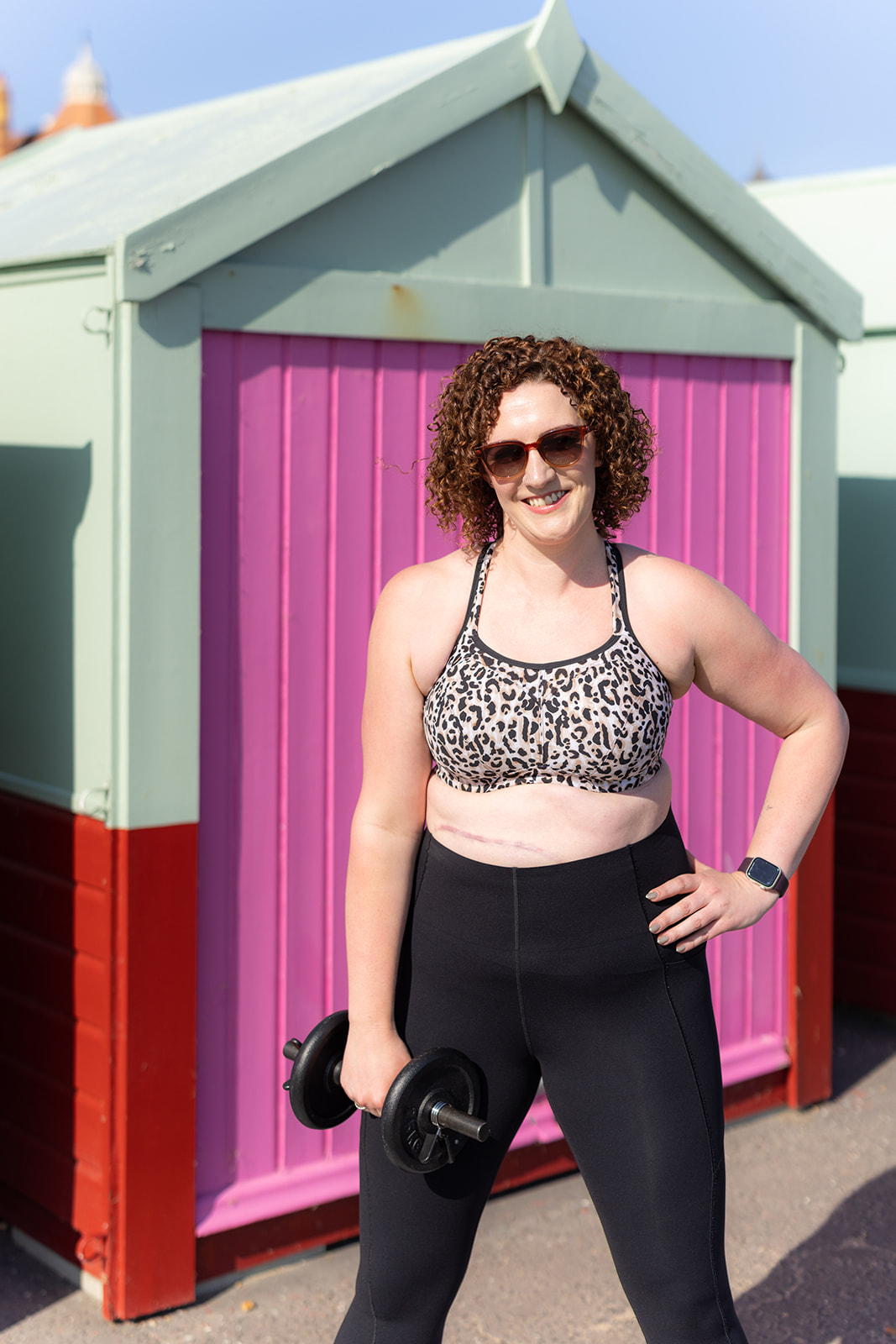Something that still tends to not be discussed when you receive a cancer diagnosis is exercise. Fortunately, there’s an increasing amount of help at hand in the community. Here, cancer exercise specialist, Becky, who’s based in Horsham, West Sussex, shares information on how to find support on your cancer journey…
When I was diagnosed with a form of sarcoma in 2018, I was only a year into my own fitness journey, aged 31. However, I knew that returning to exercise following treatment was something that I’d want to do, so I spoke to my consultant about it early on.
Having been through a significant surgery previously, I knew that I’d have to be patient, but I was shocked to receive no specific guidance, and that it was me who’d broached the subject, not him. With the help of my inpatient physio, I made a slow and steady return to lifting, and later found out about the CanRehab cancer exercise specialist qualification, which I’d soon achieve in order to help others.
Almost three years later, awareness of specialist support is still sadly lacking, so these are my top tips for how to find the person to help you…
Google is your friend
Your ideal, if you’re in the UK, is a Level 4 certified cancer exercise specialist. CanRehab remains the current gold standard. Unfortunately, there isn’t a centralised list of personal trainers with this certification, so your best bet is to search online for “cancer exercise specialist near me” and take time to look through the options.
Although we have the same qualification, personal trainers operate slightly differently, so find the person who suits your needs best and who you think that you will enjoy working with. Testimonials are great for this – read what their other clients think of them!
Some of us also choose to register via Cancer Care Map, so have a look there too.
Ask your medical team
Some consultants, specialist nurses, and physiotherapists may know of a trainer and be able to recommend them. And if they don’t, you raising the topic may help to educate them! If patients aren’t asking certain questions, medics don’t necessarily need to know the answers, so you bringing the topic up helps to raise awareness and prepare them for the future.
Unless your doctors say that it’s unadvisable for you to exercise, you are generally able to participate in physical activity when on or recovering from treatment. Even if you struggle to be consistent, something is better than nothing, and a personal trainer will tailor your sessions and can help to hold you accountable.
If there is nobody near you
Unfortunately, there may not be a cancer exercise specialist in your area. If this is the case, there are plenty who work remotely – I’ve worked with clients in other parts of the country. In a way, this means that you have even more choice and it is easier to find the person who fits your needs! The down side is that you won’t be able to train with them face to face.
It is important to work with a specialist – our insurance policies cover us for the qualifications that we hold, so someone without a specialist qualification may know a little about the specifics of your condition, but there is less assurance should anything go wrong.
Could I be your trainer?
I’ve held my CanRehab certification since 2021, and will be renewing it this year – we have to refresh every three years. My face to face sessions are mostly based in Horsham, West Sussex, and I have done home visits for some clients in the area – dates, times, and distance of travel would have to be discussed on an individual basis, but I’m happy to do so. As I mentioned previously, I can also work fully remotely with you.
Every new enquiry begins with a free consultation, so if you’d like to chat please email me and I’d be pleased to talk further with you.
